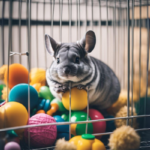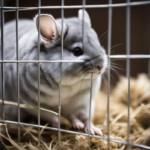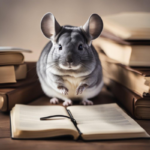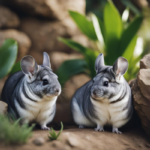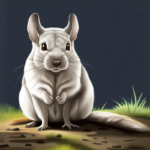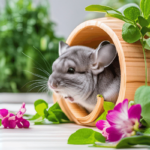Chinchillas, with their soft fur and captivating personalities, have rightfully earned their place as beloved exotic pets. But like any creature, they require specialized care to thrive. One crucial aspect of chinchilla well-being often overlooked is their dental health.
These furry herbivores possess continuously growing teeth, necessitating proper preventative measures to avoid painful complications. This comprehensive guide delves deep into the fascinating world of Chinchilla Dental Health.
What Causes Dental Problems in Chinchillas?
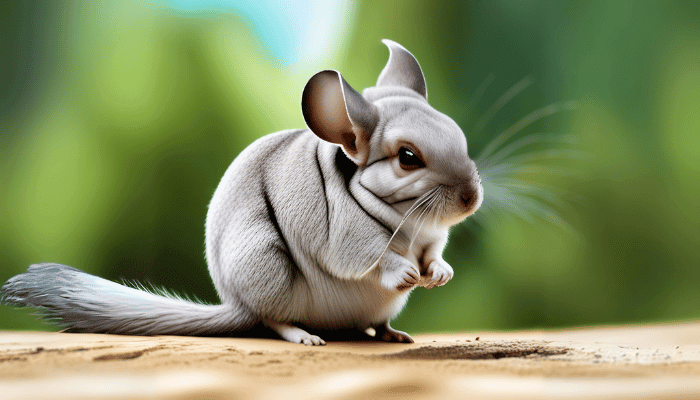
Chinchilla dental issues often stem from a lack of proper care. The primary culprits include a poor diet, inadequate chew toys, and genetic factors. It’s essential to understand these factors to provide the best care for your chinchilla’s dental health.
Chinchilla Dental Health
Unlike humans, chinchillas possess four incisors in both their upper and lower jaws, totalling eight. These prominent front teeth, crucial for gnawing and grooming, constantly erupt throughout their lives.
This continuous growth is balanced by natural wear and tear against opposing teeth and fibrous foods. However, improper diet, misaligned jaws, or lack of chewing opportunities can disrupt this delicate balance, leading to a cascade of dental problems.
Consequences of Poor Chinchilla Dental Health
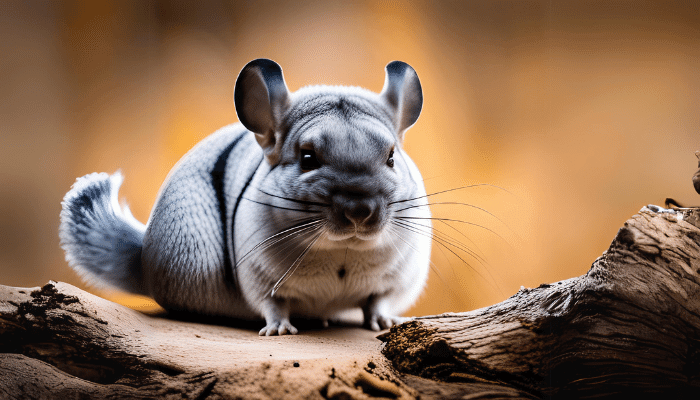
Neglecting chinchilla dental health can have dire consequences. Overgrown teeth can poke the gums and tongue, causing painful ulcers and infections.
They can also misalign, impacting jaw movement and hindering proper food intake. Worse still, overgrown roots can press against the skull, leading to neurological issues and even death.
Why Chinchilla Dental Health Matters?
Have you ever wondered why your chinchilla’s dental health is so important? Chinchillas have open-rooted teeth, which means they continuously grow throughout their lives. Chinchillas’ teeth can grow up to 2 inches per year.
Without proper care, dental issues can arise, leading to discomfort and health problems for your adorable companion.
The Role of Diet in Chinchilla Dental Health
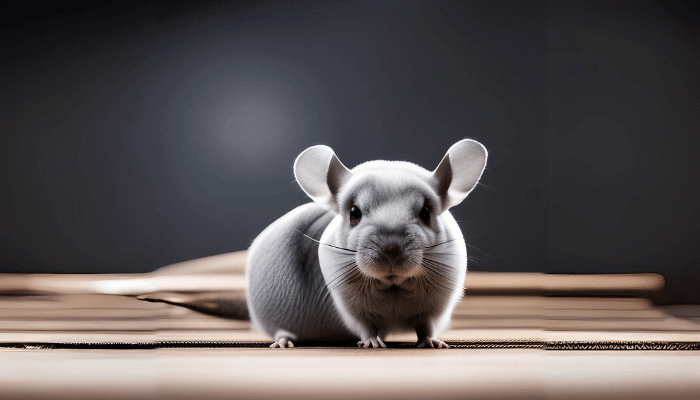
What your chinchilla eats plays a significant role in maintaining dental health. A balanced diet that includes high-quality hay helps wear down those ever-growing teeth naturally. Chinchilla Dental Health: Expert Tips for Happy Teeth start with providing the right food.
Signs of Dental Issues in Chinchillas
Identifying potential dental problems is crucial for proactive care. Keep an eye out for these signs that may indicate your chinchilla needs dental attention.
Changes in Eating Habits
Have you noticed your chinchilla struggling to eat or avoiding certain foods? This could be a sign of dental discomfort.
Excessive Drooling
If your furry friend seems to be drooling more than usual, it might be an indication of dental problems.
Maintaining Chinchilla Dental Health
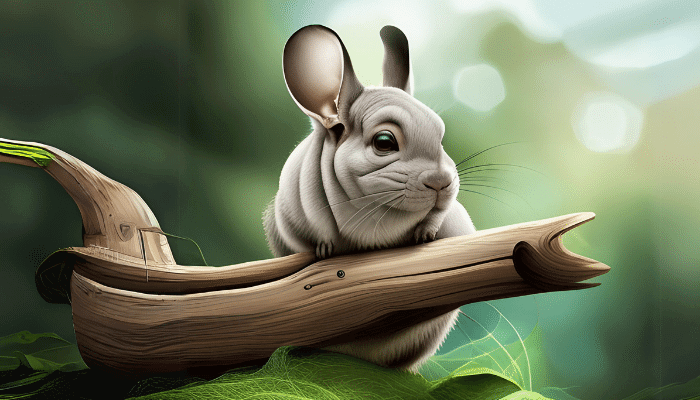
Prevention is the key to ensuring your chinchilla maintains optimal dental health. Incorporate these expert tips into your routine for happy chinchilla teeth.
Monitor Teeth Length
Regularly checking your chinchilla’s teeth is crucial for maintaining their dental health. These teeth can become misaligned or overgrown, leading to pain and difficulties in eating. To conduct a proper examination, gently hold your chinchilla and open its mouth to inspect the teeth. Ideally, perform these checks every two weeks.
Avoid Wire Cages
Choosing the right cage is paramount in preventing dental issues in chinchillas. Wire cages, particularly those with wire bottoms, pose a risk as chinchillas may chew on them, leading to dental wear, breakage, or misalignment. Opt for cages with solid floors to eliminate this risk. Solid flooring not only prevents dental harm but also provides a more comfortable surface for your chinchilla.
Provide Chew Toys
Chinchillas have an instinct to chew, and offering suitable chew toys is essential for their dental health and overall well-being. Chewing is a vital behaviour that helps wear down their continuously growing teeth, preventing issues such as overgrowth or misalignment.
Balanced Diet Matters
Ensure your chinchilla’s diet includes a mix of hay, pellets, and fresh vegetables. This diverse diet contributes to dental health.
Chinchilla Dental Health: Expert Tips for Happy Teeth Pro Tip: Hay is not only an excellent source of fiber but also aids in wearing down those ever-growing teeth.
Practical Dental Care Routine
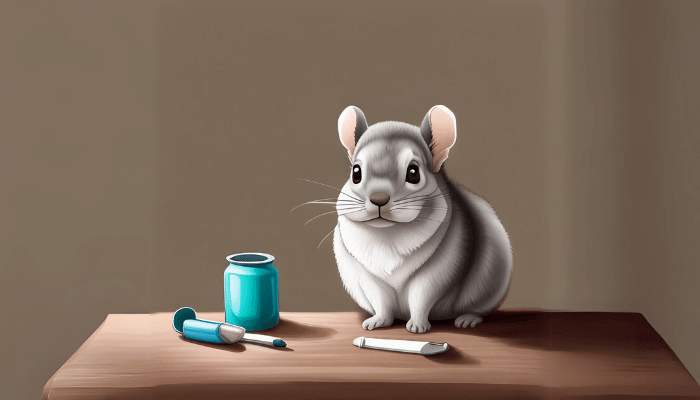
Incorporate these steps into your routine to ensure your chinchilla’s teeth stay in top-notch condition.
Regular Dental Check-ups
Schedule routine visits to the vet to monitor your chinchilla’s dental health and address any emerging issues promptly.
Brushing? For Chinchillas?
While chinchillas don’t require tooth brushing like humans, providing proper chew toys and a balanced diet serves as their natural dental care.
Conclusion
In the realm of Chinchilla Dental Health: Expert Tips for Happy Teeth, proactive care is the key. From a balanced diet to regular dental checks, investing time in your chinchilla’s dental health ensures a lifetime of happiness for your adorable companion. Implement these expert tips, and watch your chinchilla flash those pearly whites with joy.
Bonus Tip: Spread the word about Chinchilla Dental Health: Share this guide with fellow chinchilla enthusiasts and encourage them to prioritize their pet’s dental care. Together, we can ensure that every chinchilla enjoys a lifetime of crunchy, healthy smiles.
FAQs
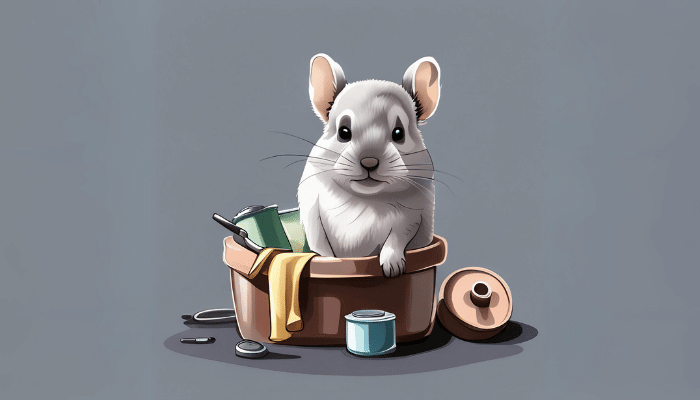
Can Chinchilla Teeth Overgrow?
Yes, chinchilla teeth can overgrow. Provide proper chew toys and monitor their dental health regularly.
Can Chinchillas Eat Fruits for Better Dental Health?
Yes, in moderation. While fruits can be a part of their diet, remember that chinchillas are prone to diabetes. Stick to fibrous fruits like apples, and always remove seeds.
How Often Should I Brush My Chinchilla’s Teeth?
Once a week is ideal. Overbrushing can lead to stress, so strike a balance for a happy chinchilla.
Are Wooden Toys Safe for Chinchilla Teeth?
Absolutely. Wooden toys are excellent for dental health. Ensure they are untreated and free from harmful chemicals.
What Signs Indicate Dental Problems in Chinchillas?
Watch out for drooling, reduced appetite, and weight loss. These could be signs of dental issues, and immediate vet attention is crucial.
Can Dental Problems Affect Chinchilla Behavior?
Yes. Dental problems can cause irritability and aggression due to pain. A happy chinchilla is a healthy chinchilla.
Do chinchillas need professional dental cleanings?
In most cases, no. Proper diet, chew toys, and regular checks can prevent the need for professional cleanings.
What Foods Promote Chinchilla Dental Health?
Foods high in fiber, such as hay, contribute to dental health. Additionally, provide wooden chew toys to satisfy their natural chewing instincts.
